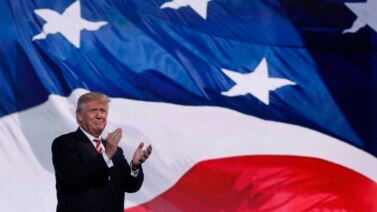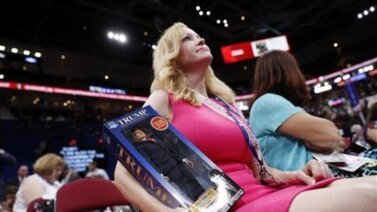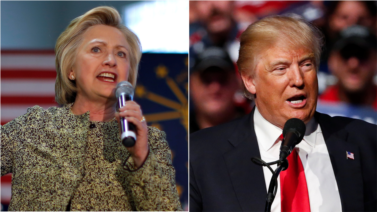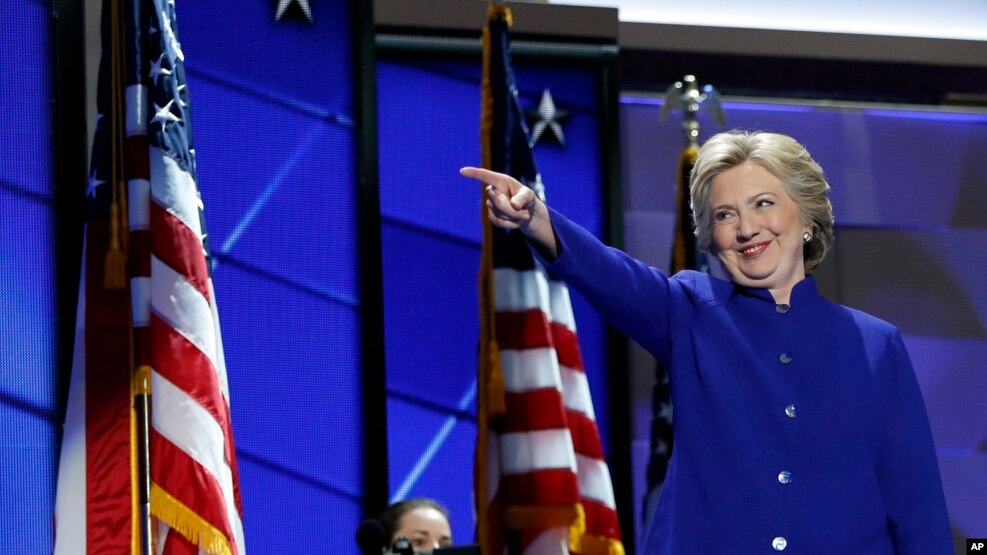
After losing the Democratic nomination to Barack Obama in 2008, Hillary Clinton said, "Although we were not able to shatter that highest and hardest glass ceiling this time, thanks to you it has 18 million cracks in it."
Eight years later, Clinton received the Democratic Party's nomination at their convention in Philadelphia. The former first lady, senator and secretary of state is now looking to shatter the ultimate glass ceiling to become president of the United States.
Her main opposition is businessman Donald Trump, a first-time candidate for political office. Trump won over 16 other candidates to win the Republican nomination.
The general election will be held on November 8 this year.
Unexpected challenge on the way to the nomination
Hillary Rodham Clinton was expected to win the Democratic nomination easily when she announced her candidacy on April 12, 2015. Many well-known Democrats, including Vice President Joe Biden, chose not to run against Clinton.
Clinton, however, faced an unexpectedly strong challenge. The senator from Vermont, Bernie Sanders, attracted many supporters during the Democratic primaries. Tens of thousands turned out to hear Sanders' messages of income inequality, making college tuition free and regulating big businesses.
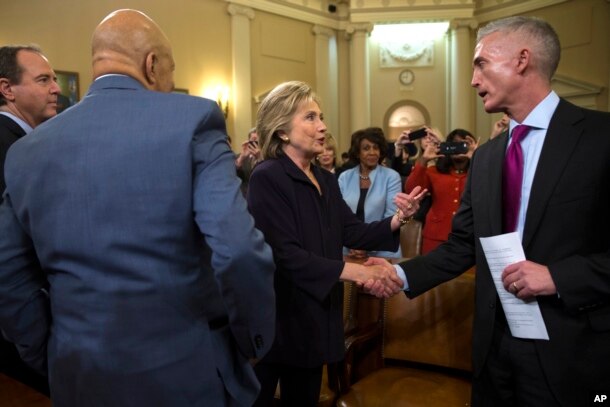
At the same time, Clinton had to answer questions from Congress about her role as secretary of state during the attack in Benghazi. Four Americans, including a U.S. ambassador, were killed in the 2012 attack in Libya.
The committee who examined the case said the U.S. government did not provide enough security to protect the diplomatic post. But it did not hold Clinton responsible for the failure.
However, during the hearing about Benghazi, it was found that Clinton had used a private email server to conduct official business as secretary of state. Clinton, like many other government officials, was required to use a government server for work communication.
Faced with a series of investigations, including one from the FBI, Clinton said using the private server was a mistake.
The FBI found no evidence that Clinton intentionally used the private server to send or receive classified documents. But the FBI director criticized Clinton for being “extremely careless” in handling the information.
Clinton's background
Clinton was born on October 26, 1947 in Chicago. Her father, Hugh Rodham, was a successful owner of a small business selling drapes. Her mother, Dorothy, was abandoned as a child and sent to live with relatives. Clinton frequently says her mother's experience as a child inspired her to “fight for the needs of children everywhere.”
After high school, Clinton attended Wellesley College, an all-women's school in Massachusetts. Then she went to Yale Law School in Connecticut, where she met her future husband, Bill.

The two classmates moved to the southern state of Arkansas and got married in 1975. Their child, a daughter named Chelsea, was born in 1980.
Bill Clinton was elected attorney general and eventually became governor of Arkansas. As the state's first lady, Hillary Clinton served on several committees on education, children and families. She also worked as a partner for the private Rose Law Firm.
During Bill Clinton's campaign for president in 1992, critics questioned his wife's decision to continue working while serving as the first lady of Arkansas.
Hillary Clinton replied, “I suppose I could have stayed home and baked cookies and had teas, but what I decided to do was to fulfill my profession, which I entered before my husband was in public life."
As first lady of the United States, Clinton remained active in politics. She is well known for leading a failed effort to establish universal health care. A similar program was later established under President Obama.

In 1998, Bill Clinton faced impeachment for charges related to a sex scandal with a White House intern. But the U.S. Senate did not convict him. Bill Clinton remained in office.
Hillary Clinton wrote in her autobiography, Living History, that she was “heartbroken” over her husband's actions and considered leaving the marriage. She added, "The most difficult decisions I have made in my life were to stay married to Bill and to run for the Senate from New York....”
In 2000, Clinton became the first woman to be elected to the U.S. Senate from the state of New York.
Six years later, Clinton launched her own campaign for the presidency. That time she lost the Democratic nomination to Barack Obama, a junior senator. Clinton then joined the Obama administration as his secretary of state.
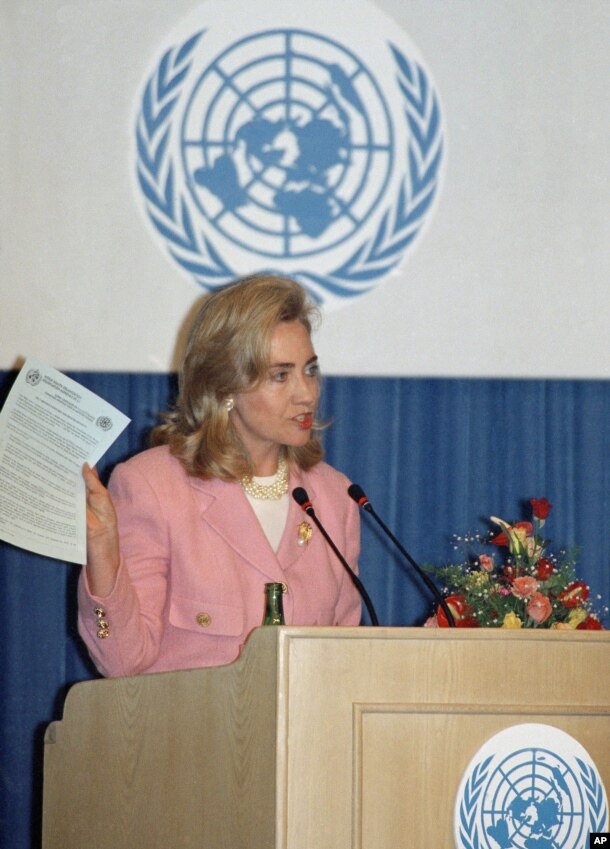
In her career, Clinton has addressed many issues, including rebuilding New York after the September 11 terrorist attacks, negotiating with Iran, and providing better health care benefits to people who serve the public. But she is best known for improving the lives of children and women.
In 1995, she declared at a U.N. World Conference of women, “human rights are women's rights.”
Earlier this year, after clinching the Democratic nomination in her second run for the presidency, Clinton reflected on her mother, Dorothy Rodham, during a victory speech in Brooklyn.
“I wish she could see what a wonderful mother Chelsea has become and could meet our beautiful granddaughter, Charlotte, and, of course, I wish she could see her daughter become the Democratic Party's nominee.”
Hai Do wrote this story for VOA Learning English. Kelly Jean Kelly was the editor.
Words in This Story
shatter - v. to break suddenly into many small pieces
glass ceiling - n. an unfair system or set of attitudes that prevents some people (such as women or people of a certain race) from getting the most powerful jobs
convention - n. a large meeting of people who come to a place for usually several days to talk about their shared work or other interests or to make decisions as a group
intentionally - adv. done in a way that is planned or intended
drapes - n. long heavy curtains
intern - n. a student or recent graduate who works for a period of time at a job in order to get experience
clinching - n. making certain the winning of (something)
